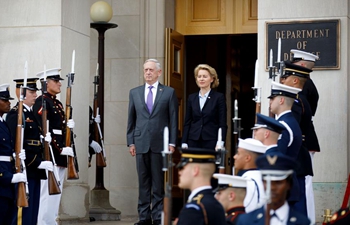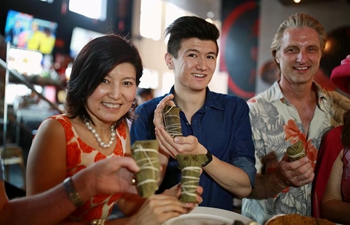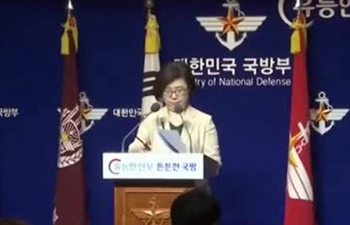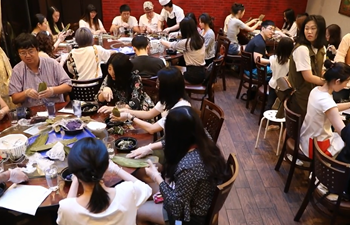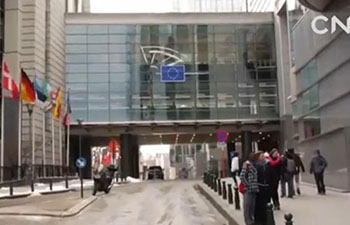WASHINGTON, June 21 (Xinhua) -- U.S. State Department said on Thursday that the number of U.S. diplomats affected by the alleged "acoustic attacks" in Cuba has risen to 25.
In a press briefing, State Department spokesperson Heather Nauert said that "one U.S. diplomat working at the U.S. Embassy in Havana was medically confirmed to have experienced health effects similar to those that were reported by members of the U.S. Havana diplomatic community," making the number of affected Americans rise to 25.
This has been the first medically confirmed case in Havana since August, 2017, she said, adding that the U.S. interagency "investigation into the origin of these symptoms continues."
Nauert added that the U.S. side had informed the Cuban government of this occurrence on May 29 this year, and Cuba had promised to continue to take the incident seriously and continue their investigation.
U.S. State Secretary Mike Pompeo said on June 5 that currently, 24 U.S. government personnel and family members who served in Cuba have been medically confirmed as "having symptoms and clinical findings similar to those noted following concussion or minor traumatic brain injury."
Noting that the reported symptoms had included dizziness, headaches, tinnitus, fatigue, cognitive issues, visual problems, ear complaints and hearing loss, and difficulty sleeping, Pompeo announced that the State Department had established a task force to deal with the alleged health incidents.
Over 20 U.S. diplomats suffered from what Washington called "acoustic attacks" between November 2016 and August 2017. The incidents led to the partial closure of the U.S. embassy in Havana, expulsion of 15 Cuban diplomats who worked at the embassy in Washington, and a halt in issuing U.S. visas in Havana.
Cuba rejected the accusation, initiated an investigation, and urged the United States to present evidence of the alleged attacks.
Cuba's Ministry of Foreign Affairs reiterated on Sunday the lack of evidence related to the alleged sonic attacks suffered by American diplomats in the Caribbean nation.
The Cuban government has said that, after more than a year of investigations, there are no scientific conclusions to justify the actions taken by the White House to the detriment of bilateral relations.







